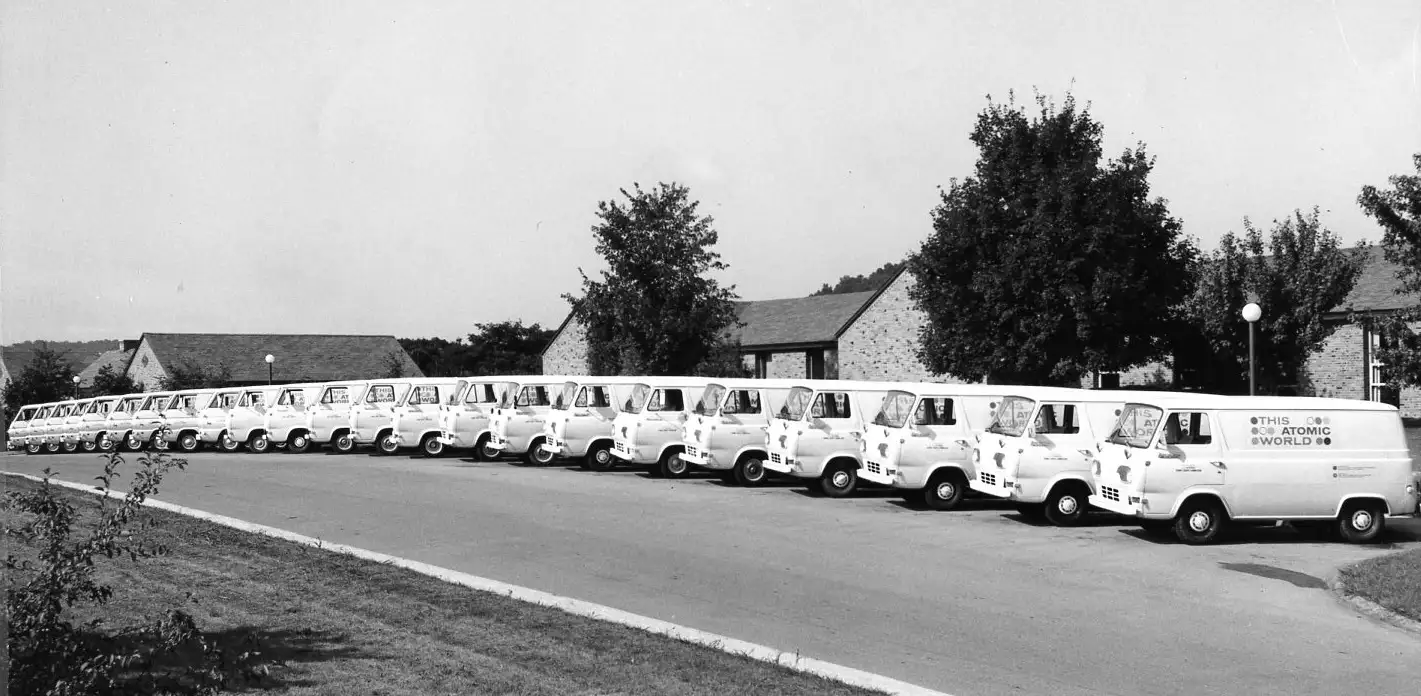Since our inception in 1946, ORAU has built our reputation on providing solutions. We’re like a bridge builder. We see a gap and seek to connect the divide. At this point, we have been on a mission to serve the public good for more than 75 years. We have stayed true to our not-for-profit purpose, but for those who are not close to all that our organization is involved in, they may not realize ORAU’s impact on the United States—and the world.
What is ORAU? from ORAU on Vimeo.
As a recent exercise, ORAU put together a list highlighting some of our biggest impacts. It’s a list we’re pretty proud of, and it helps take the macro concept of what we do and puts it into perspective.
Review this list (in no particular order) to find out if you know how wide ORAU’s ripples reach:
1. Trained multiple generations of U.S. health physicists
ORAU has trained every generation of health physicists in this country (and many from outside our borders). Health physicists are specialists who deal specifically with radiological science. Another way to say it: health physicists are men and women who are trained to ensure people and the environment are protected from harmful levels of radiation, and they work with radiation that is necessary for healthcare and radiation that helps cure disease. They help minimize exposure and radiological contamination. ORAU has been raising awareness of radiation exposure since the 1940s, when the field of health physics was believed to be first established. Through professional training programs focused on radiological science, we have educated people in the detection and prevention of radiation exposure. From the Atoms for Peace program established during the Eisenhower administration through classes we offer today, ORAU has trained three generations of health physicists.
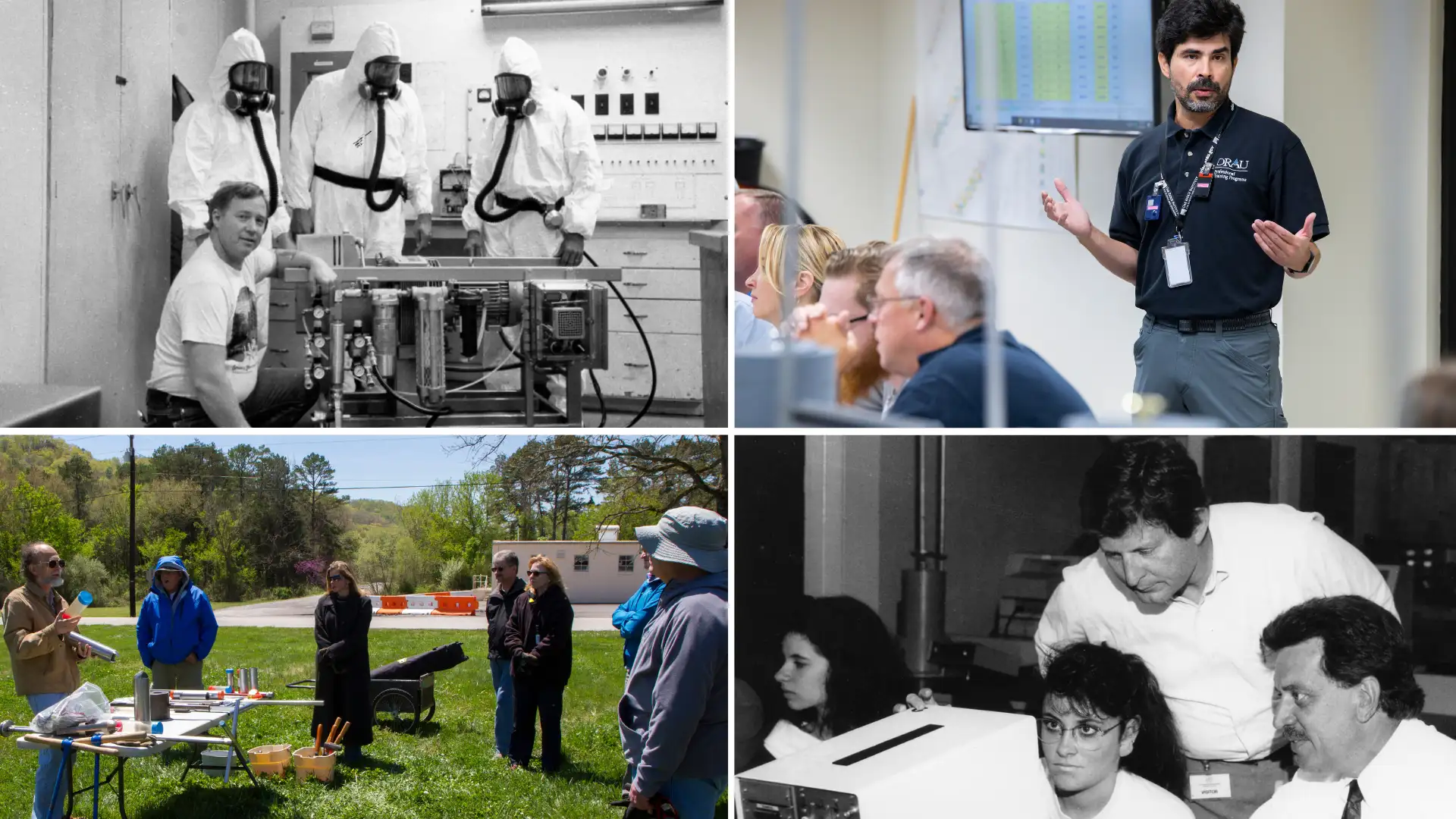
ORAU Professional Training Programs through the years.
2. Helped mitigate damage of radiological disasters around the world
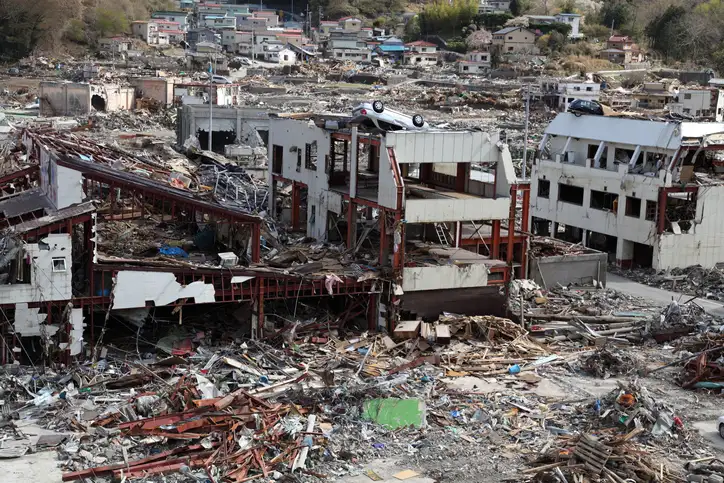
On March 11, 2011, an earthquake triggered a tsunami and then the Fukushima nuclear accident disaster.
Either directly (in responding) or indirectly (through training others), we have been the boots on the ground for the medical management of many of the most significant radiological disasters around the world. The Radiation Emergency Assistance Center/Training Site (REAC/TS), which is the National Nuclear Security Administration's emergency response asset operated under the ORISE contract, is capable of worldwide deployment for any type of radiation accident, incident or terrorist attack. It was REAC/TS that provided advice and consultation on the medical management of the incident to various agencies responding to the Fukushima Nuclear Power Plant disaster in Japan in 2011. ORAU provides extensive education in line with the requirements of the Nuclear Regulatory Commission to provide engineers and scientists with the skills needed to continue improvement and mitigation of damage from radiological disaster.
3. Ensure the U.S. nuclear deterrent
Since the discovery of the nuclear chain reaction, the U.S. has stockpiled nuclear material to deter foreign attacks. The Manhattan Project produced the results of the first nuclear weapons, so, the logical question after WWII ended was where will the next generation of these scientists come from? ORAU took up that mantle to recruit the next generation of scientists and engineers to keep America safe and competitive on the world stage. As much as the physical stockpile of nuclear weapons serves as a deterrent to attack, so does our preparedness deter enemy plans to cause widespread casualties. Through workforce solutions in recruiting those employed in nuclear technology and our education efforts, ORAU’s focus on the nuclear deterrent strategy strengthens national security.
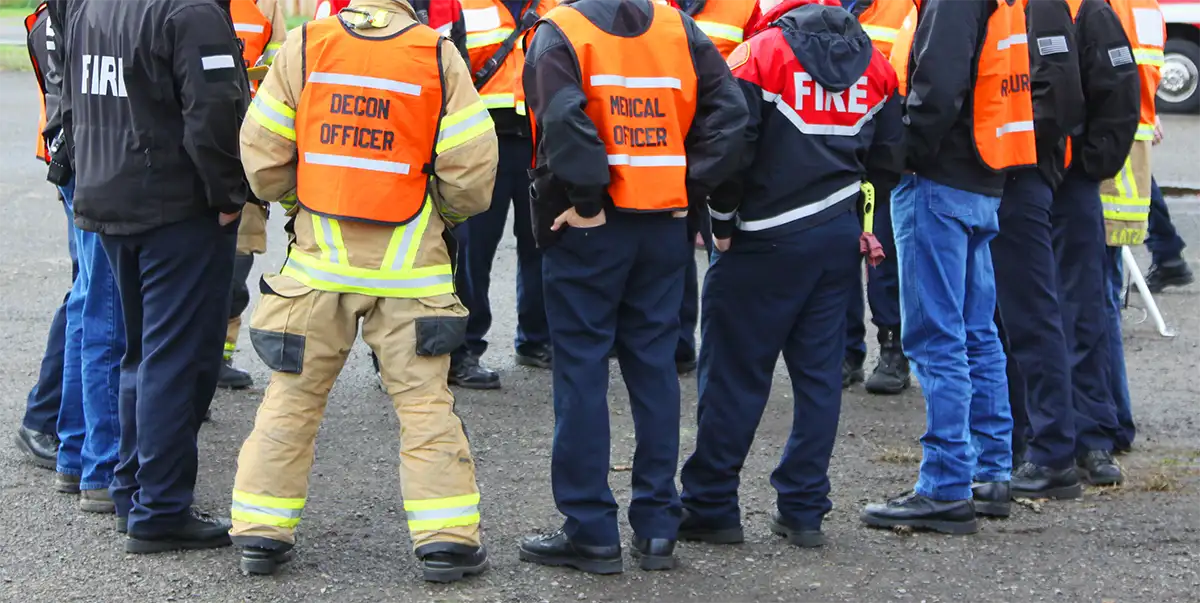
ORAU prioritizes workforce solutions and education to ensure nuclear deterrent.
4. Help former energy workers secure compensation for occupational disease
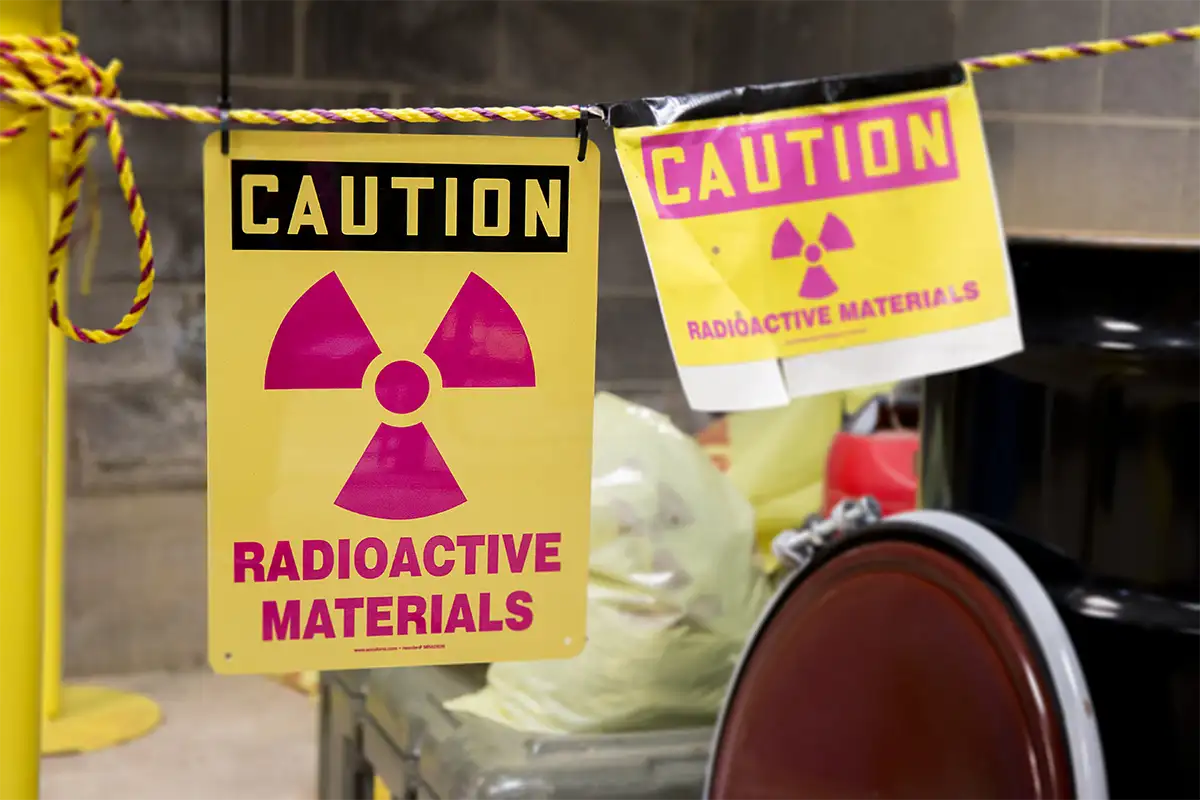
ORAU has submitted more than 66,000 dose assessments to aid energy workers secure compensation for work-related illnesses.
Since its inception in 2002, the National Institute for Occupational Safety and Health (NIOSH) Radiation Dose Reconstruction Project has become one of the most important workers’ compensation programs in the United States. And, from the beginning of this program, ORAU has been tasked with leading the charge. The radiation dose reconstructions provide critical information used in adjudicating claims filed under the Energy Employees Occupational Illness Compensation Program Act. Funded by the U.S. Department of Labor, the program helps ensure that energy workers who developed cancers from occupational radiation exposures—or surviving family members—are rightfully compensated. ORAU has completed and submitted more than 66,000 dose assessments, conducted more than 192,000 interviews with claimants or their survivors and taken more than 730 trips to identify and secure relevant data. We are proud to lead the way in supporting those who dedicated their lives to the practical uses of radiation.
5. Ensure federally funded scientific research is sound
Because of our peer review expertise, federal, state and local agencies call on ORAU to help them ensure they are spending tax payer dollars efficiently and with upmost integrity when funding research proposals and other scientific programs and endeavors. We manage scientific peer reviews that provide critical, independent assessment of research proposals and program performance to help sponsors determine the quality of research proposals and accuracy of scientific information. We use independent third parties to review all research and go through a nine-step process to confirm the integrity of the research proposal or programs. Our peer review team identifies factors that can damage review integrity including conflict of interest, failure to protect data and reviewer bias. We operate in a prevention-is-best method of avoiding these challenges.
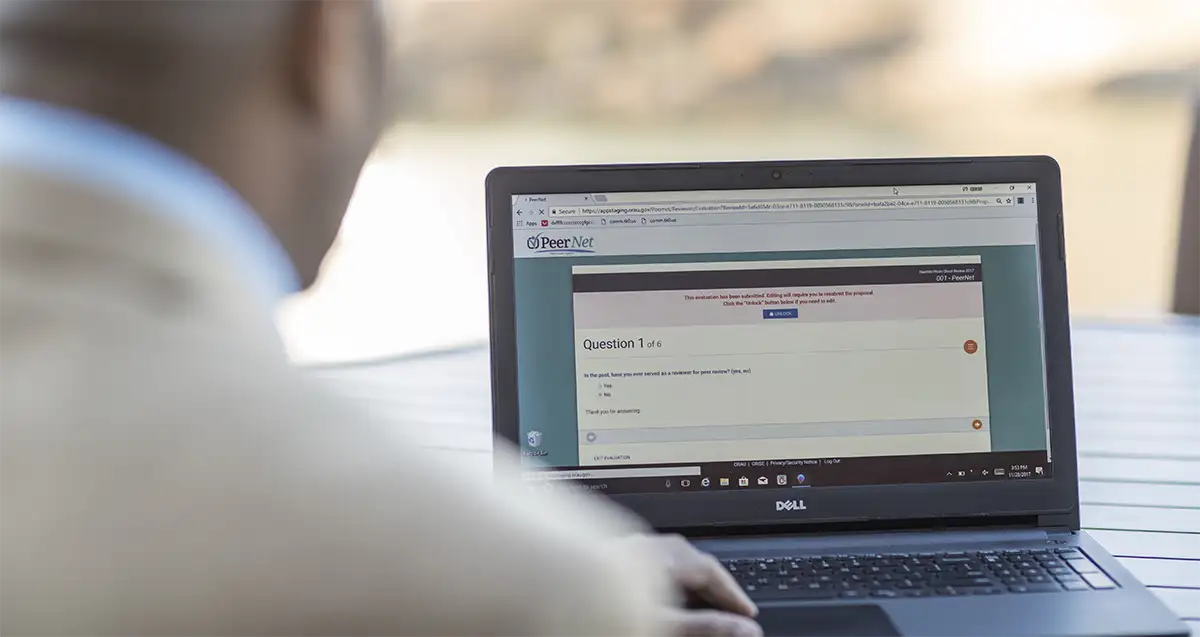
ORAU peer review exercise.
6. Bring terrorists to justice
September 11 and the threat of terrorism completely changed our world and called for a whole different level of expertise. Did you know our forensic expertise helps federal agencies bring terrorists to justice? Pretty cool, right? One example: When the war in Iraq ended, we entered a new warfare with insurgents. They were killing our armed forces with IEDs. The military and federal government brought our experts in to help improve forensic analysis of improvised explosive devices (IEDs). We linked up our latent fingerprint examiners with the Terrorist Explosive Device Analytical Center at Quantico, which still exists today. ORAU employees used methods like lifting latent fingerprints off the back of duct tape used in the IEDs. Now we can figure out who the terrorist bomb makers are and track them down.
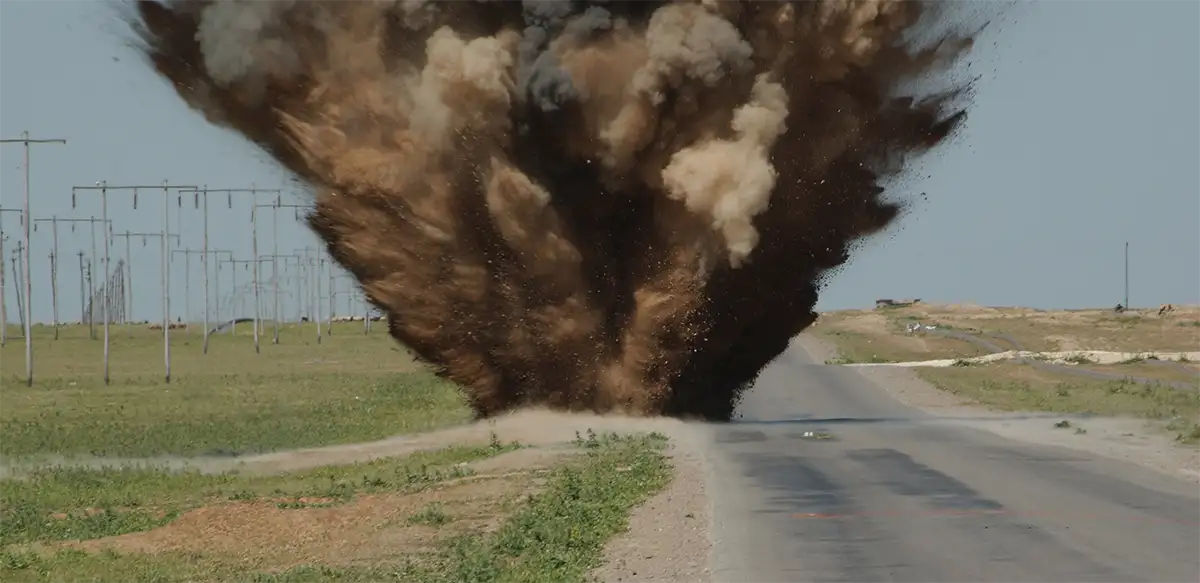
IED explosion in Dibbis, Iraq
7. Inspire a new generation of minority scientists and engineers
ORAU is committed to fostering relationships between members of the Minority Serving Institutions Consortium and federal government partner agencies. We are always looking for new initiatives to reach the untapped talent that can be found at these institutions. With intentional support of Historically Black Colleges and Universities (HBCUs), we recruit and train future scientists and engineers from communities that have not consistently pursued STEM careers. Not only does this segment of the population add to the strength of the field, but it also opens opportunities to students who previously may not have considered a future in STEM. Some examples of initiatives focused on recruiting minorities in 2023 include hosting HBCU listening sessions for NASA and leading a technical workshop on behalf of the National Institutes of Health Path to Excellence program.
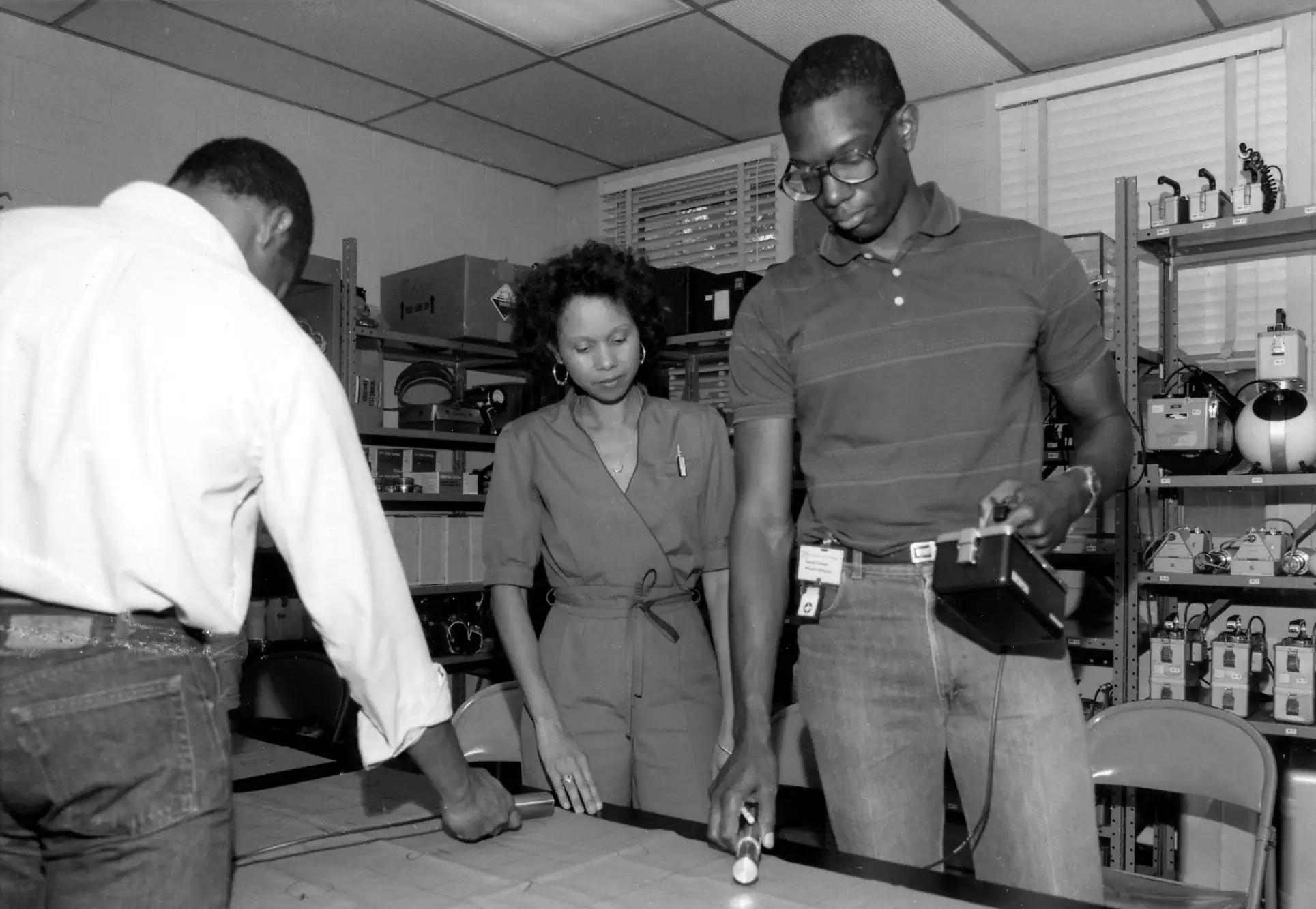
This picture is from a Professional Training Program we hosted in 1988 to engage HBCUs.
8. Improve American veterans’ access to government resources
America’s veterans benefit from the improvements we have helped the government implement. We’re good at anticipating needs. One example of this is our software called PIMS (Performance Improvement Management System). It helps the Veteran’s Administration (VA) deploy resources to help veterans all over the country. PIMS keeps tabs on supplies and volunteers so it’s easy to identify and allocate what is available. It can help when our country is scrambling to respond to natural disasters, and our team can even make some tweaks to use it in other emergencies as we did during the pandemic. The program supports 170 VA medical centers and currently has more than 20,000 active volunteers. This is also an appropriate opportunity to share that ORAU has been named one of the most veteran-friendly companies in the nation (ClearanceJobs and Security Clearance Careers). We’re proud of the impact and betterment we’re involved in when it comes to serving those who served us.
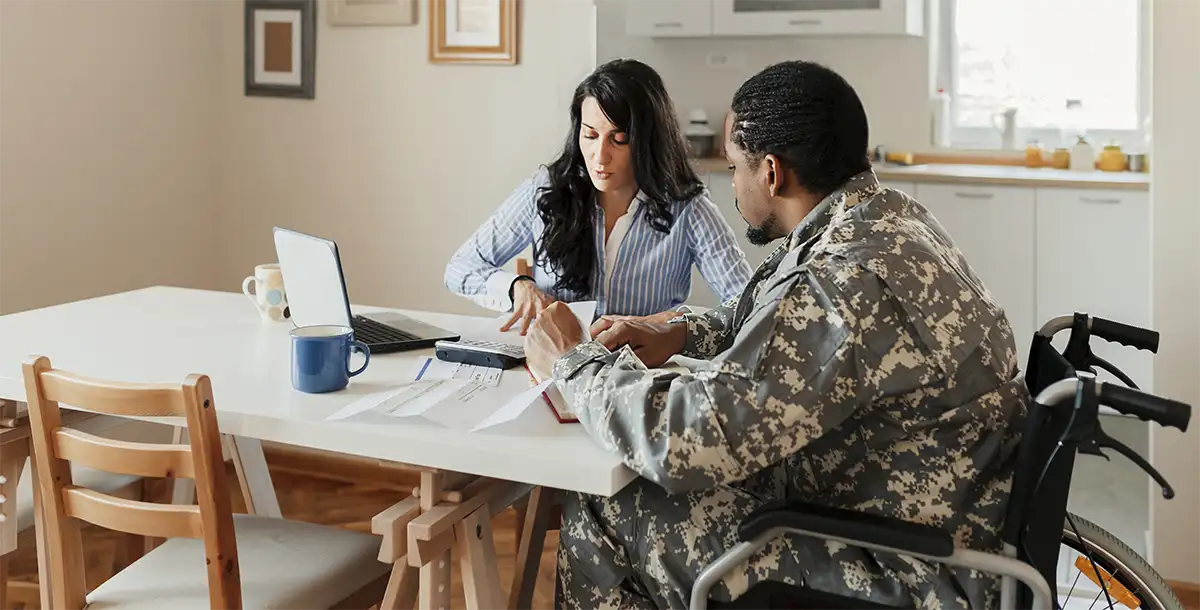
ORAU’s mission to serve veterans is aided by software built specifically for resource allocation and deployment.
9. Aid the fight against drug addiction
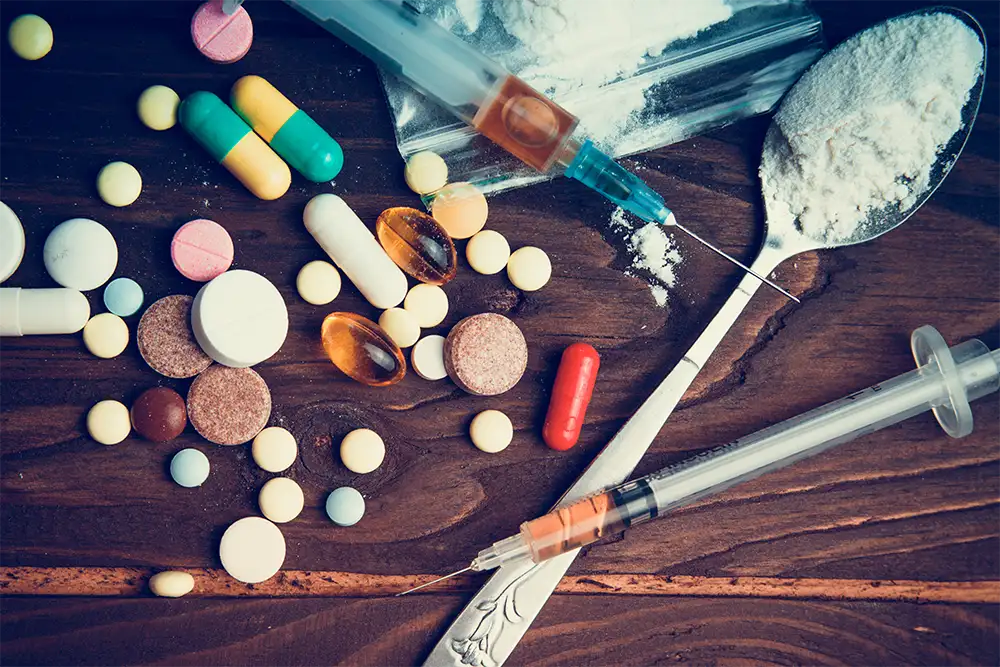
ORAU is involved in fighting the opioid epidemic.
We help individuals and families break the drug addiction cycle. Our team pulls together focus groups of addicts to learn from them and their experience. We learned to use a language addicts recognize so we can help dispel stigma in reporting and communicating. Rather than simplifying terms into phrases that are easy to dismiss such as a “pill problem” or “opioid addict,” our subject matter experts are educating the community to speak using more effective vernacular. Specifically, the southeast has experienced an opioid addiction crisis for a few decades now. ORAU worked with the Appalachian Regional Commission to produce a study, Communicating about Opioids in Appalachia (.PDF, 5 MB), that explored the relationship between communication and addiction. Factors like upbringing, relationships, trauma and stigma were all found to negatively impact those who suffer from addiction. As we better understand all contributing factors, we will improve harm reduction and work toward breaking addiction’s cycle.
10. Inform climate strategies
In working with the National Oceanic and Atmospheric Administration (NOAA), we collect meteorological data that informs climate strategies. We build and install weather stations to collect data. These stations are located across the United States. In fact, we have a team gathering data in the furthest reaches of Alaska right now. It’s called the Climate Reference Network, which is managed by ORAU as part of NOAA’s Atmospheric Turbulence & Diffusion Division (ATDD) to provide the most relevant and crucial climate research in the country. The data collected offer key insight into the changes in atmospheric quality and air pollution across the world.
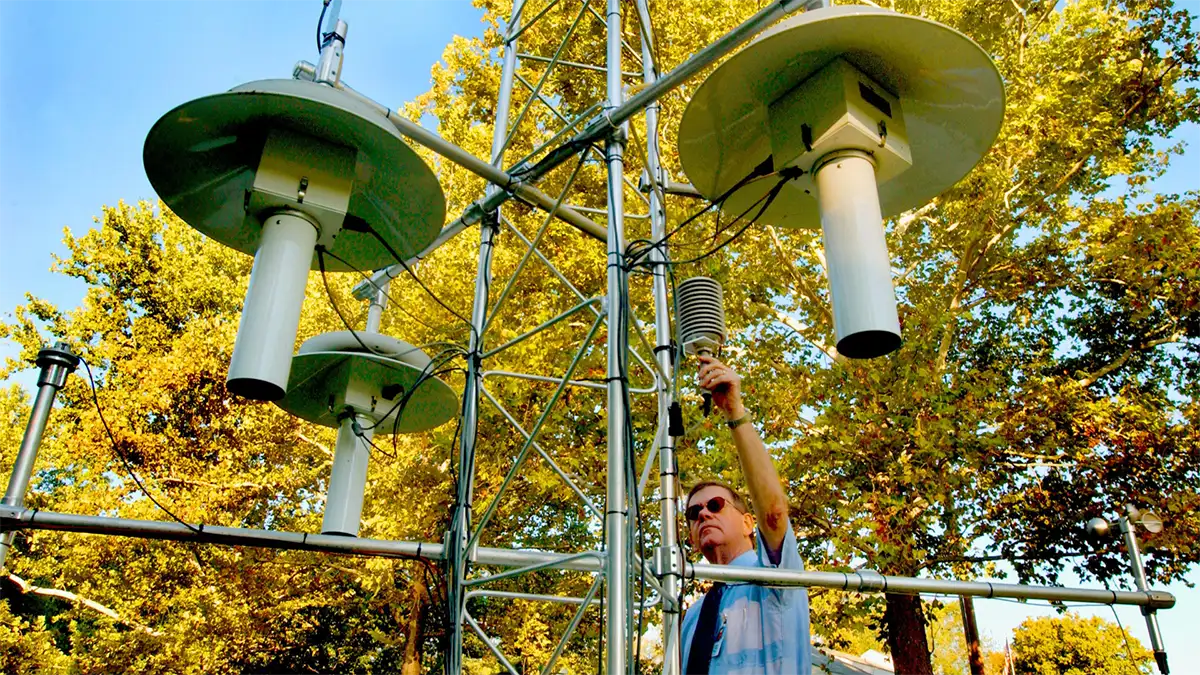
Atmospheric Turbulence and Diffusion Division and one of the Climate Reference Network stations in Oak Ridge.
11. Verify decommissioned government sites are safe for public use
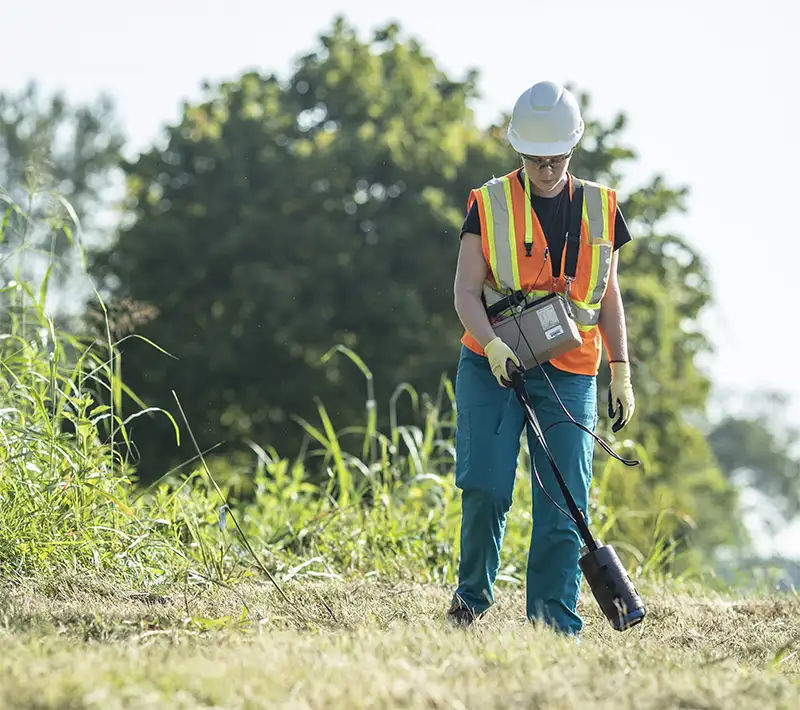
This image is from a field survey in 2019.
ORISE is a leading provider of independent environmental assessment and verification. That means, the American public can be confident in re-using land previously used for research involving radiation or other contaminants because we have verified that it has been cleaned up to regulatory standards for release to the public. As the government decommissions its sites, we come in and independently verify that it’s been cleaned up following the highest standards. ORISE health physicists are renowned experts in the Multi-Agency Radiation Survey and Site Investigation Manual, the recognized standard for planning and executing radiological surveys. The Department of Energy, the Nuclear Regulatory Commission and other regulators rely on us as their independent verifier of environmental cleanup efforts.
12. Enhance opportunities for the next generation of STEM leaders
Because it’s critical for young professionals to pursue STEM careers to continue advancing the United States’ competitiveness on a global scale, ORAU facilitates scientific workforce solutions that educate and train the next generation of STEM leaders and give them hands-on research experiences. We create a multigenerational pipeline through our K-12 programs, including free summer academies sparking interest in various STEM opportunities. We have put our money where our mouth is and have given more than $500,000 to local schools for the latest educational technology through the past 15 years of our Extreme Classroom Makeover program. We actively recruit applicants for the NASA Postdoctoral Program, the Army Research Lab, the Environmental Protection Agency and National Nuclear Security Administration among others.
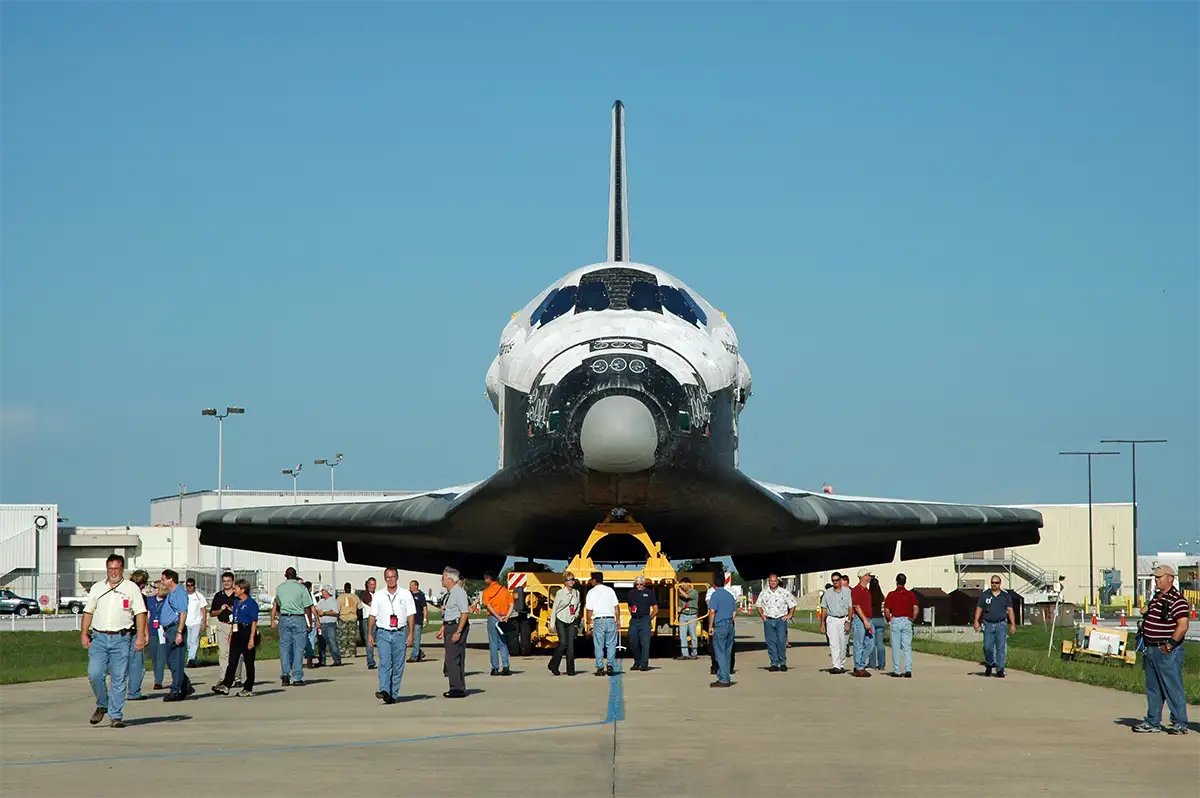
The NASA Postdoctoral Program offers unique research opportunities.
13. Encourage more effective health policies

ORAU works toward making Medicare and Medicaid more effective for the people who receive these services.
The U.S. government has more innovative and effective health policies because of our experts and research. Payment policies play a huge role in delivery of and the cost of healthcare. We help improve the quality of care and patient outcomes by helping our government agency partners take a more holistic approach to delivering care.
This list of 13 impacts is a snapshot ORAU has made in our 75+ year history. It’s exciting to think how our impact will continue to grow over the next 75.
